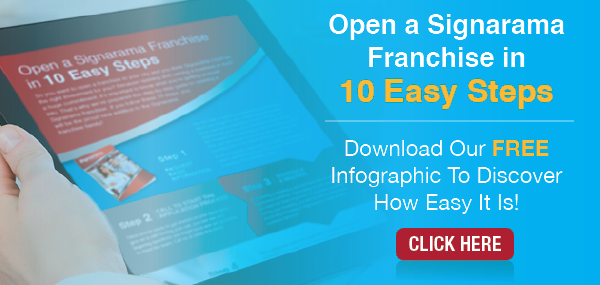One of the many decisions you’ll face as an entrepreneur is whether to start your own independent business or buy a franchise. While starting from scratch can give you complete control over every aspect of your new venture, there’s no one to tell you how much money you might need to invest. In comparison, franchisors can tell you all about the anticipated costs of buying a franchise because they’ve done it many times.
Cost-Saving Benefits of Buying a Franchise
Before you sign a franchisee agreement, you’ll learn exactly what to expect in terms of upfront and ongoing costs that come with buying a franchise. Typically, these costs include the franchise fee, rental-related expenses, leasehold improvements, supplies and equipment, professional fees, national marketing, local advertising, and royalties. Additionally, there are a number of cost-saving benefits that come with franchise ownership that you won’t have as a independent operator:
- Brand recognition: Buying into an established franchise system gives you the power of immediate brand recognition, which can take years to develop if you own a standalone business.
- Turnkey system: A franchise is a complete, turnkey business concept that’s been developed and thoroughly tested by the franchisor. Working within such a system saves you both time and money because the wrinkles have already been ironed out and the processes are streamlined and efficient.
- Purchasing power: As a solo owner of a fledgling business, your buying power is limited. As a franchisee, you can take advantage of lower prices for equipment, supplies, and other necessities negotiated by your franchisor.
- Access to financing: We’ve all heard the stories of wildly successful entrepreneurs who started on a shoestring budget. Most businesses need money to get off the ground, though, and it can be difficult to get financing for an independent startup. Some franchisors offer in-house financing, while others have developed relationships with lenders who’ll work with new franchisees to make borrowing easier.
- More effective marketing: A franchisor who’s been in business for a while has tested and fine-tuned its marketing strategy to make it as cost effective as possible. In addition to using these marketing techniques in your local advertising, you’ll have the benefit of regional and national campaigns that boost brand awareness.
- Speed to market: By partnering with a franchise company with experience setting up a business, you’ll have help with site selection, building out and equipping your location, training your employees, and even promoting your grand opening. This can help you avoid wasting countless hours researching, potentially making costly mistakes like choosing the wrong location, and allow you to open your doors and start generating income sooner.
- Ongoing support: As an independent business owner, you’re on your own. As a franchisee, you’ll not only receive training and assistance with getting your business established, but also have ongoing support and guidance from your franchisor, and you’ll gain an immediate peer group of other franchisees who know exactly what you’re experiencing as a new owner.
- Industry innovations: As the owner of a small business, you probably won’t have a lot of extra time to spend keeping up with the latest innovations in your industry. Franchise companies want to stay up to date on cutting-edge processes and product offerings and share these advances with their franchisees.
- Faster return on investment: While there are no income guarantees with owning either an independent business or a franchise, achieving a return on your investment can occur faster when you buy into a franchised brand that’s already familiar to your target customers.
To learn more about the cost savings of buying a franchise in the growth-oriented global sign industry, contact us at Signarama today!

